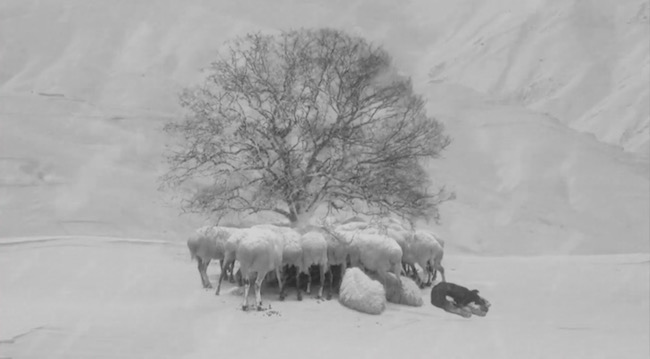The Long Goodbye (1973) Directed by Robert Altman
I get Dashiell Hammet and Raymond Chandler confused. I can't differentiate very well between Sam Spade and Philip Marlowe either. And the dames....outside of Nora Charles, they all seem interchangeable to me with both writers. This gets especially confusing as while I know some of their novels almost by heart--
The Maltese Falcon, The Big Sleep, The Thin Man, Farewell, My Lovely--the rest, including
The Long Goodbye have not stayed in my consciousness with the same tenacity.
However, I know
The Long Goodbye well enough to realize that director Robert Altman is doing a modern jazz riff on Chandler's noir. That's okay by me, even necessary, as the plot is not one of the author's best. There is a lot of misdirection and filler, and we don't really care about the characters that much either as they are a rather blah lot. Altman's sleight of hand is to give us a series of set-piece scenes with a lot of seemingly ad lib moments going on that keep the audience on its collective toes. The very start of the movie is a confection that I am pretty sure is not in the book, certainly not at such length if it is, about Marlowe"s relationship with his cat, who turns out to be a really good actor nailing all of his spots and reactions perfectly…make that purrfectly. How did they get a cat to do that stuff, I wonder? Anyway, it is an appealing loosey-goosey sequence that seems mostly there just for the hell of it. The sequence also introduces Eliot Gould's take on Marlowe as an LA hipster who talks to himself a lot. He's a long way from the Humphrey Bogart/Robert Mitchmum model, but in this particular context, an Altman movie, he works just fine. Some of his presumbably ad-lib one-liners don't make much sense, but they’re given in the proper deadpan spirit so no big deal.
The scenes neatly click by at a pace that is leisurely but not slow. I've seen the movie at least five times, and this is the first time, to my delight, that I realized Jim Bouton played Terry, a jaw-dropping revelation for me. Jim Bouton is a once-upon-a-time New York Yankee pitcher who had two brilliant years early on in his career before descending into complete mediocrity (lifetime record: 62-63). But he was the first athlete to write an insider tell-all book,
Ball Four, that was the first of its kind, a total blast of fresh air which remains among the very best of this limited genre. Mickey Mantle, Yogi Berra, Phil Rizzuto, Billy Martin, Catfish Hunter all come alive in the text though not necessarily in ways they all approved of. Bouton has two scenes which bookend the movie and he is actually perfect in both. So that was new fun.
Another thing that always shakes me a little in this movie, is the suicide scene in the ocean surf that occurs midway through the movie. I find it fascinating to watch in a car-wreck sort of way because it was such a stupid thing for Altman to do with his actors. The scene reminded me of the first thing my Hawaiian pal told me on my family's first trip to Maui, which was "Remember, the ocean is not a lake." You do not go traipsing into high surf, especially at night, because you risk being pinwheeled into becoming a paraplegic. So watching that scene, even though I know how it turned out, I still hold my breath. The only scene scarier for me is Lillian Gish playing footsie on the ice flows above Niagara Falls in
Way Down East.
Sterling Haden as a big, loud red herring gives an outsized performance, and I mean OUTSIZED. It bugs me a little, but I bet it was something Altman encouraged him to do, part of his directorial riffing. There are a lot of cross rhythms in this movie. It has a lot of nervous energy. As cinematic jazz riffs go, it is a lot closer to Thelonious Monk than Dave Brubeck. There’s a clear melody but some purposeful improvisation in front of and behind the camera. Like the opening cat sequence, some scenes are there more for their feel than because they are absolutely necessary. In scene after scene one or more of the actors actually seem to solo, acting their little hearts out on behalf of their character. The Altman trademark of people talking at the same time is perfectly suited in this instance, heightening the sense of ensemble. The film is a multi-tonal experience, and Altman doesn't seem to care if everybody hits every note right or not. Nothing is allowed to interfere with the laid back rhythm of the film.
While the movie was set in then-present LA, Marlowe drives a big ‘30s convertible just to pay a little homage to the time and place of the original work. One of the greatest cinematographers ever, Vilmos Zsigmond, obtains the perfect colour palette for a Philip Marlowe movie in color, shooting mostly at night, his cameras always peeking around corners or looking through windows. It struck me how could Marlowe afford the gorgeous penthouse apartment he lived in (with cat). Not to mention how could the pretty collection of bare-breasted stoner bimbos who lived across the way manage the rent. But those aren't the sort of details Altman ever much worries about. A young musclebound Arnie makes a brief appearance as one of the minor thugs. Just lots of little grace notes everywher. Even more than John Cassavettes, who never really got out of the art house, Altman proved that a director of his idiosyncratic sensibility could make big entertaining movies and be true to his own particular stylistic vision at the same time. No small achievement. Just think how few times it has been done.



